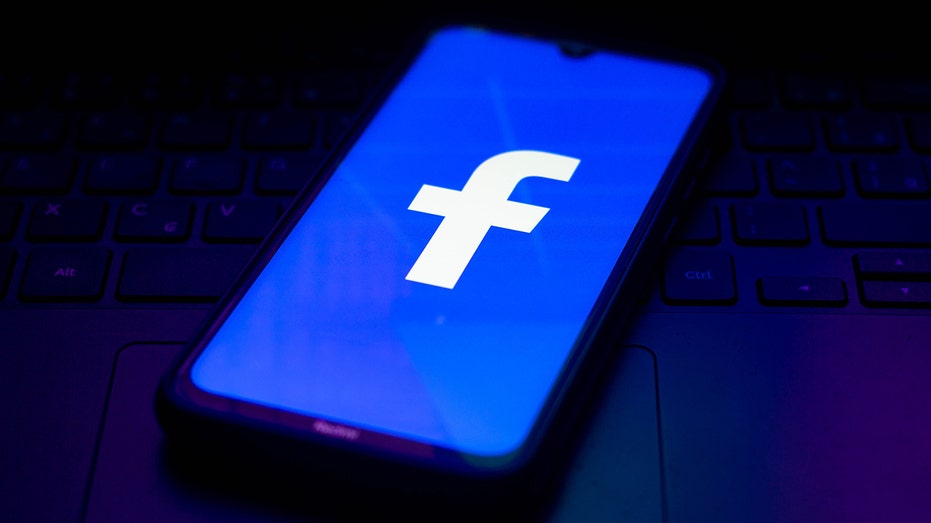Facebook, Twitter moving at a 'slow speed' to combat Russian government disinformation, expert says
He says that that social media's slow enforcement of policies in cases where the Russian government is spreading disinformation is troubling
FOX Business Flash top headlines for March 25
Here are your FOX Business Flash top headlines for March 25.
One expert is claiming that Facebook and Twitter are moving at a "slow speed" in their enforcement of Russian government propaganda and disinformation on social media.
After Russian forces bombed a maternity hospital on March 9 in Mariupol, the Russian embassy in the United Kingdom tweeted pictures from the blast captioned with the word "FAKE" over them, implying that the hospital only had military troops inside.
The embassy additionally targeted Ukrainian blogger Marianna Podgurskaya, stating that she "played" the role of a pregnant woman with "very realistic make-up," that looked like blood.
"It’s the indeed pregnant [Ukraine] beauty blogger Marianna Podgurskaya," the embassy tweeted, according to the New York Post. "She actually played roles of both pregnant women in the photos."
UKRAINE CRISIS: KREMLIN BLOCKING RUSSIANS' ACCESS TO TWITTER AMID PROTESTS, CRITICISM: RESEARCHER

IRPIN, UKRAINE - MARCH 07: Residents of Irpin flee heavy fighting via a destroyed bridge as Russian forces entered the city on March 07, 2022 in Irpin, Ukraine. Russia continues its assault on Ukraine's major cities, including the capital Kyiv, more (Photo by Chris McGrath/Getty Images / Getty Images)
The posts were removed from Twitter, but only after government officials in the United Kingdom expressed outrage, according to the report.
Emerson Brooking, a resident senior fellow at the Digital Forensic Research Lab of the Atlantic Council, told FOX Business that this is a prime example of social media companies moving at a "slow speed" to combat propaganda coming from Russian government accounts.
"What has troubled me most is the slow speed of enforcement in cases where Russia is using its government presence or it's continuing the existence of government accounts clearly to spread disinformation," Brooking said. "In the case of the Russian embassy that was personally maligning a bomb victim in Mariupol, claiming that this woman was a crisis actor and was an outrageous, personally directed attack and the attack lasted for several hours on Twitter before it was removed and got significant shares."
Since the beginning of the Russian invasion of Ukraine, Facebook and Twitter have taken actions targeting the Russian government as well as some aimed at helping keep individuals informed.

In this photo illustration the Facebook logo seen displayed on a smartphone. (Photo Illustration by Rafael Henrique/SOPA Images/LightRocket via Getty Images / Getty Images)
Twitter suspended advertisements in Russia and Ukraine on Feb. 25 in an effort to ensure "critical public safety information is elevated and ads don’t detract from it," according to the company.
A Twitter spokesperson pointed FOX Business to a blog post explaining their approach to the war in Ukraine, which includes de-amplifying content that isn't associated with a risk for immediate harm but may be out of context and mislead people. If a tweet is in violation of the Twitter rules, action will be taken against it, the blog post states.
One day after Twitter made the announcement, Meta announced that it is banning Russian state media from "running ads or monetizing on our platform anywhere in the world." Meta also announced the establishment of a "Special Operations Center to respond in real time."
Meta also announced on Feb. 28 that it is restricting access to RT and Sputnik across the European Union.
TWITTER SUSPENDS ADVERTISEMENTS IN RUSSIA AND UKRAINE AMID WAR
Brooking, however, says that there is a difference between that type of content and press releases or government statements that are shared on Russian government accounts.
"I want to distinguish that kind of content from press releases or government statements, or the things that are typically released via these channels," Brooking said. "That's the sort of content, even if we find it despicable, that I think should continue to circulate in the digital space."
CLICK HERE TO GET THE FOX NEWS APP

FILE - This July 9, 2019, file photo shows a sign outside of the Twitter office building in San Francisco. Twitter posted solid results for the last three months of 2020, capping what CEO Jack Dorsey called "an extraordinary year" for the platform. ( (AP Photo/Jeff Chiu / AP Images)
Brooking says that social media companies face a constant battle to maintain balance.
"For these companies, it is always a balancing act. And if Russia continues to use its official voices to engage in such personal and repugnant attacks, then I think their access to these platforms should be totally removed," Brooking said.
FOX Business' Michael Ruiz contributed to this report




















